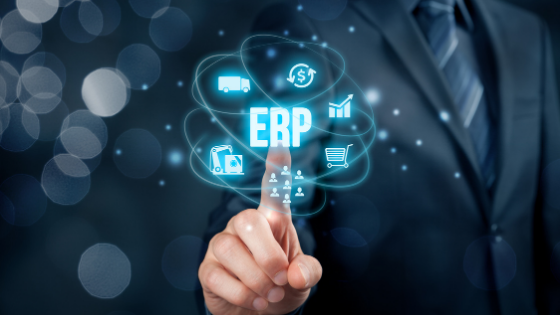Top 5 Reasons for Cloud ERP Adoption

Why is ERP moving to the cloud? Because the benefits are real and empowering. The enterprise market is experiencing the advantages of other cloud-based systems that they utilize. So naturally, they are expecting the same value be applied to their ERP systems. Here are the top 5 reasons to include your ERP system as part of your cloud adoption plans:
Dramatically Improved Bottom Line as a Whole –By adding your ERP to the number of applications you are transferring to the cloud, your bottom-line improves across the board. The longer companies wait to transfer, the longer they will be supporting what has become an overly expensive system. The vivid realization of improved money management begins with the basic move to a predictable, monthly operating expense. As with other cloud-based systems, the expense is scalable to your needs, so you don’t pay in excess of what you need. Likewise, there are no expensive downtimes due to upgrades or maintenance. There is no investment required for IT infrastructure to house the system. There are also no costly break or fix emergencies. These are just a few of the significant cost benefits you will reap as you transition your ERP to the cloud along with your other cloud-based applications.
Adaptive to Your Business and Industry – A cloud-based ERP is hosted and maintained at the source, enabling swift and efficient implementation and updates. However, it is not a static out-of-the-box solution. It is still adaptable and customizable to your particular business and industry. In addition to being agile and flexible, you will also have access to any changes in required regulations and compliance tracking. Creating a vastly improved process for audits and responses.
Increased Accessibility and Ease of Use – We all expect to have the Internet available to us any time, anywhere, and from any device. It is becoming incomprehensible when we do not. After all, look at how much we all depend on our phones, online shopping, and online banking. By moving your ERP to the cloud, you and your employees can work remotely and in real time, knowing that all information is available, accurate and consistent. In addition, cloud-based ERP is designed to be easy to learn and easy to use so your employees can maximize its abilities for full utilization of the system.
Staying Competitive – Your competition is moving to the cloud. They are improving their bottom-line, adjusting their expenses and redistributing funds to other initiatives. With a cloud-based ERP, exasperation due to computer problems is eliminated and is replaced with a dependable, reliable system employees can trust. Now, they will be able to respond to customers and colleagues in a timely fashion with all the information they need for quick action and reliable decision making. Put altogether, a cloud-based ERP improves customer relationships, employee productivity and business growth as a whole. These conveniences and empowerments available from a cloud-based ERP are required for effective operations and to stay competitive in today’s business world.
Increased Security – The servers are now placed in an environmentally controlled, secure, data center facility. Physical security required to protect your servers becomes obsolete. The data center is responsible for continual security and cybersecurity monitoring, system backups, and the elimination of processing interruptions. With a cloud-based ERP, security is built-in, constantly updated and constantly improved upon, providing protection as well as peace of mind.
Unfortunately, some IT professionals are enabling access to their on-premises ERP servers rather than transferring to a true cloud-based system. In this case, your ERP becomes as susceptible as ever and while you may have accessibility, you do not have any of the advantages provided by an authentic cloud-based ERP.
By moving to a cloud-based ERP as part of your overall transition, you can receive the benefits in a timely manner and without delay. Contact our experienced and expert team here at Decision Resources to guide and support your move to a cloud-based ERP.
Similar Blogs

Chips, drugs, and steel — how to prepare for Trump tariffs

How Steel Manufacturers Forge Ahead with Infor CloudSuite Industrial ERP





